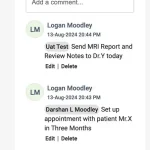According to Statista, 86% of Canadian Physicians have adopted the EMR/EHR systems to move away from paper-based charts and manage day-to-day administrative activities. Usage of EMR/EHR has become an indispensable part of any medical practice across Canada. Over the last decade, Canadian Physicians have been busy adapting traditional EMR/EHR, the technology used to build and run this essential system has gone through an extraordinary transformation. The technical ecosystem has transitioned from expensive – Client-Server systems to accessible web-based/Hosted systems to affordable cloud-based systems.
What is a Client-Server Based EMR/EHR?
Many Canadian EMR companies are now prompting the Web-Hosted model. The vast majority of physicians are still utilizing traditional EMRs/EHRs, installed in a doctor’s office, resulting in a high maintenance cost. These systems are not accessible outside their premises or would be difficult to access from their homes.
The key disadvantages of the client-server EMR/EHR are
- High IT Infrastructure Cost.
- High Maintenance Cost.
- Limited/inaccessibility from outside their office.
- Outdated Technology
- Extremely time-consuming and resource-intensive maintenance
- Not integrated or connected to the Ministry, Insurance, and other external systems
The technology stack used in Client-Server technology was very popular in the 1990s and 2000s.
What is a hosted EMR/EHR?
With the rapid expansion of the internet in the 2010s, the world witnessed a boom in eCommerce. Amazon, eBay, and many shopping sites became popular. The advent of smartphones made the internet available from mobile phones. With faster internet connectivity enabled systems to be remotely accessible through a browser or application.
The EMR/EHR providers have to take lots of precautions to safeguard their centrally hosted servers at their data centers. This considerably reduced the maintenance burden at the doctor’s office, but it did not address the security concern adequately.
Why a Cloud-based EMR/EHR?
The ‘cloud’ is a way of hosting a software platform or service remotely over the Internet, which is easily accessed and used almost anywhere. Cloud-based EMR/EHR with augmented security and ease of use is an enhanced version of web-hosted EMR/EHR. Using Software as a Service (SAAS) providers like RexEMR, EMR/EHR systems are maintained by the service provider, which means independent physicians don’t have to spend time installing and maintaining servers and services. Providers are responsible for all updates.
Some of the key advantages of cloud-based EMR/EHR.
- Elimination of Upfront cost hardware
- Reduced ongoing maintenance costs
- High-Level of EMR/EHR system availability- systems are available 24/7
- Scaled up security with dual-factor authentication, and encryption of data and systems.
- Compliance updates are handled centrally and regularly, eliminating reliance on external vendors.
- The use of a Certified drug database and smart decision-making tools ensures the reduction of medical errors.
The Verdict
Client-Server EMR/EHR were great tools that helped doctors transition from paper-based charts to paperless environments. Due to security concerns, many Canadian physicians have not migrated to newer Web-hosted systems. Moreover, there were not many services providers in Canada that offered Hosted EMR/EHR.
A cloud-based EMR/EHR is economically more viable. They also take away the burden of worrying about compliance to codes and security standards. Most cloud-hosting platforms like AWS, Google Cloud, or Microsoft Azure have better security and compliance records than privately hosted solutions. The emergence of Cloud-based platforms gives a Leap-Frog Opportunity for Canadian physicians to adopt more secure, compliant, trending technology than client-server or hosted EMR/EHR. Raj Loganathan is the Founder and CEO of Windsor, Ontario-based AWS Cloud-based comprehensive EMR that address every need of a physician in a single platform/ecosystem.



